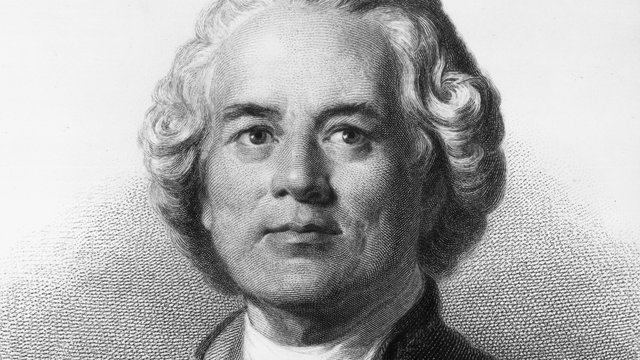I just submitted an essay for my history class, which I wrote on the composer Christoph Willibald von Gluck. Yes, I’m one of those weird people who find history essays interesting, and since Gluck had some good thoughts on music and opera, I thought I’d share some of my essay with you. (Don’t worry, I won’t copy and paste it; I’m not that lazy! 😅)

Christoph Willibald von Gluck (1714-1787) was a German composer in Vienna, composing and conducting for Prince Joseph Friedrich von Sachsen-Hildburghausen’s orchestra (what a name!). His main task there was composing operas for the court.
I’m not sure what comes to mind when you think of opera, but if it’s anything along of the lines of extravagant costumes, elaborately ornamented melodies, melodramatic reactions and strange, fantastic plot lines, we’re on the same track.
Turn that up to eleven, and you’re close to the Italian opera scene of Gluck’s day. Singers were generally more concerned with showing off their skill than with conveying the character, and composers were using the orchestra to explore their skills in counterpoint rather than the message of the story. To Gluck, the purpose of opera was not to wow the audience with ornamented vocal lines and illustrious orchestral arrangement, but to move them with human emotion as conveyed through music. He wrote, “I believe that the voices, the instruments, all the sounds, and even the silences (in my music) ought to have only one aim: namely that of expression.” He considered anything that detracted from the expression of the characters’ emotions to be clutter.
To prove his point, Gluck wrote three reform operas: Orfeo ed Euridice (1762), Alceste (1767) and Paride ed Elena (1770). The focus of these operas was, as he said, for everything to work together to accurately portray the characters’ emotions.
Fast-forward 259 years, and we have both approaches evident in music. In some ways, our performances are more perfect than ever before. Anything can be edited to sound however we want, whether it means eliminating specific frequencies to achieve a certain tone, tweaking the notes so that they sit perfectly on the scale, or shifting them to fit the beat exactly.
At the same time, we have film scorers, who get sadistic smile of satisfaction out of every tear shed in a cinema. Every note they write is a number in a formula, “with only one aim”, as Gluck said, “namely that of expression.”
I also can’t help thinking of performances where the singer is so overcome by emotion their voice breaks or cracks. In Hamilton, when Lin-Manuel Miranda singing ‘It’s Quiet Uptown’, he cries the whole way through (for anyone confused, I’ve only seen the filmed recording on Disney plus 😅). He’s barely singing, yet, it’s the perfect way to sing that song.
So is it better to have something sung precisely, or emotionally?
As Gluck says, it depends on the purpose of the song. Is the aim to show off a virtuoso singer’s amazing voice? Or is it to make the audience cry?
This depends on the genre and style. Some songs require good singing and not much emotion. I don’t know much about RnB, but I don’t see or hear many singers crying or genuinely laughing in the genre. It’s quite deadpan, but then the technical skills of those singers is phenomenal. Contrastingly, folk is often more emotional, and vocal runs and licks can seem out of place.
Of course, all things in moderation. A singer who’s completely off-key will lose all emotional impact, as the bad singing will distract everyone from the actual message of the song. And a singer who’s perfectly technically correct will suck the life out of any well-written song.
If the purpose of music is expression, then a well-sung song is one where the singer has carefully considered what balance is required in the song–where to bend notes and where to hit them bang-on. Where to rush them, and where to deliberate them. Where to ornament, and where to cut it short. Each note is carefully chosen to bring out the message of the song.
According to Gluck, that’s the most important thing–not emotion, nor ornamentation, but expression.
References:
- Croll G. 2021, Christoph Willibald Gluck, Retrieved: 13 August, 2021, from https://www.britannica.com/biography/Christoph-Willibald-Gluck
- Fisher, B. D. 2008, Orfeo ed Euridice—Opera Journeys Mini Guide Series, Opera Journeys, Boca Raton, Florida.
- Leppard, R. 1982, Orfeo ed Euridice, [theatrical performance accessed via YouTube], London Philharmonic Orchestra, Glyndebourne Festival de Opera, viewed 13 August 2021.
- The Metropolitan Opera 2021, Synopsis: Orfeo ed Euridice, Retrieved: 13 August, 2021, from https://www.metopera.org/discover/synopses/orfeo-ed-euridice/
- (Feature image from Photo by Kazuo ota on Unsplash)
What do you think? Was Gluck right? What’s a song you think strikes the perfect balance?

